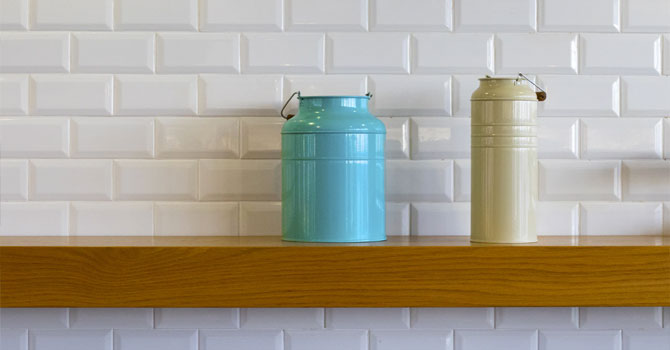In 2014, a little book called The Life-Changing Magic of Tidying Up was published, spurring thousands of people to remove things in their household that don’t spark joy. Fast forward five years later and Netflix released the series Tidying Up with Marie Kondo, inspiring many to learn how to become a professional organizer.
- Inbox Dollars - Get paid to check your email. $5 bonus just for signing up!
- Survey Junkie - The #1 survey site that doesn't suck. Short surveys, high payouts, simply the best.
- Nielsen - Download their app and get paid $50!
Despite its popularity, though, the KonMari Method isn’t the only organizing technique around.
In fact, professional organizers have been around since at least the 80s, helping individuals, as well as businesses, improve their organizing systems with the ultimate aim of increasing day-to-day efficiency and productivity.
If this sounds like something that you want to do, this comprehensive guide is for you. Read on to learn everything you need to know about how to become a professional organizer.
What Does a Professional Organizer Do?
In a nutshell, certified professional organizers teach their clients the basic principles of organization, with the ultimate goal of creating an organizational system that their clients can maintain.
An organizer (or their team) can come to a home or office, work with their client to put the things in each of the spaces in order, and then advise on the best tools and techniques so the client can maintain this order for the long-term.
Some professional organizers help their clients buy or design household furniture that is part of their clients’ long-term organizational strategy.
Other professional organizers also advise clients on their time management strategies, especially the day-to-day tasks that can build up, become chaotic, and cause clutter and disorganization in the first place. By teaching clients how to prioritize tasks, they can help clients maintain order in their spaces.
What a professional organizer does not do is clean a client’s house from top to bottom. They develop processes and teach clients these processes to get to a more efficient and organized space.
What Skills and Qualities Do You Need to Become a Professional Organizer?
Clients who hire professional organizers need help with more than just picking stuff up from the floor and making things tidy. They need to learn organizing skills from you so they can work on arranging their own things themselves.
Here are the main skills and qualities you need to have as a professional organizer.
- Empathy — People accumulate stuff for various personal reasons. When placed in a difficult position where they may have to dispose of these items, they often become emotional, or worse, hostile. Professional organizers need to be able to understand this attachment and make their clients understand as well so they can let these things go when they need to.
- Communication skills — This job involves constantly talking to all kinds of clients and basically telling them what to do with their possessions. Thus, communication skills can make or break your career as a professional home organizer.
- Problem-solving skills — The clutter may look the same, but different clients have different needs and different motivations. While there are guidelines followed by every professional organizer, getting to the heart of your client’s actual problem to provide a custom solution is an essential skill.
- Time management — When an organizer takes on a client, a contract is drafted and deadline determined. It’s not easy encouraging people to make changes, but an organizer should be able to take all these factors into account to meet agreed deadlines.
- Determination — No matter how detailed your conversations with your client are or how clear your contract is, a project may become a bigger one than you initially thought. You’ll need to be determined to finish the project, whatever it takes.
- Passion — Aside from your passion to organize, clients need to feel that you’re invested in making sense of their clutter and helping them to get to a point where they can organize their things themselves.
- Discretion — When you’re clearing away in various rooms, you’ll inevitably be exposed to various paperwork that your client would want to keep confidential, such as bank statements, credit card bills, legal documents, prescriptions, and other sensitive information. As a professional organizer, you need to be discreet about the information you inadvertently gather. In fact, go the extra mile and add a non-disclosure agreement with your contract.
How to Become a Certified Professional Organizer
If you’ve already started getting clients and working as a professional organizer, well and good. But if you want to scale your services and turn this gig into a business, it’s highly recommended to become a Certified Professional Organizer® (CPO®).
Becoming a CPO gains you more credibility with your clients, allowing you to command a higher rate. It also indicates that you’re serious about your career and continuously honing and learning about your craft.
The National Association of Productivity and Organizing Professionals (NAPO) is an international body that gives out credentials to professional organizers, offers continuing education and coursework, and hosts an annual conference featuring industry experts.
To earn your CPO credential, you’ll need to meet the following eligibility requirements:
- A minimum of a high school diploma or equivalent.
- Agree to adhere to the BCPO Code of Ethics for Certified Professional Organizers.
- Be prepared to document a total of 1,500 hours (an average of 9.6 hours per week) of paid work experience in the five (5) years prior to applying to take the exam.
- Pass the CPO Exam, which is a standardized exam with 125 multiple choice questions that must be completed in 2 hours.
They don’t just administer the exam, though; the NAPO website has resources to help you prepare for the exam. The BCPO Handbook is the main reference you’ll refer to before and after you take the exam, and even beyond that.
The required paid work experience is any activity where you transfer, teach, or demonstrate your organizing skills to clients. This means it can be a mix of on-site and virtual organizing, coaching, workshops, training, consulting, speaking engagements, military service, continuing education, and many others.
You’ll need to document these activities using the NAPO log template properly.
Randomly selected candidates are audited, so you should be prepared to support your log.
If you’re new to the industry and can’t complete the paid work experience hours required, check continuing education courses at NAPO University.
5 Ways to Get Clients as a Professional Organizer
Assuming you’ve gotten certified as a professional organizer and you’re all set to make your career into a life-changing business, the next step is to fill up your calendar (and your portfolio too!).
Here are 5 ways you can find clients:
No joke. Here are the fastest ways to make easy money online. Click here to see how.
1. Start Networking
You’ve been probably networking to gather clients as a freelance professional organizer.
To scale up your networking, make sure to decide on a business name and your own logo.
Once you have a name and a logo, divide your time marketing in the real world (offline) and online. Join local community groups, forums, and so on, and learn how to advertise services online without being tagged as spam.
Create profiles for every social media websites you could find. You may think that Instagram is only for celebrities and selfies, but photos from your portfolio can be shared there. You’ll never know if someone checking out your posts decides to hire you based off that post.
2. Build a Website
Documenting should be a natural to you once you’ve taken on a career as a professional home organizer.
Take plenty of high-quality before and after pictures, bearing in mind your commitment to discretion. These will help you build a portfolio.
Show off your work on a website. It serves as a modern calling card, so leave your active contact details as well.
Plus points if you start a blog on your website, because this will give your site a more personal touch. In fact, a reader may just be so impressed by your writing/storytelling/information that they decide to hire you there and then.
Starting a blog on professional organizing also helps search engines index your websites and serve it up to web searchers who use the right keywords.
3. Get Active on Social Media
Imagine being a keyboard away from hundreds of potential clients. Being active in social media allows you to have an audience, even if you’re just starting out in this field.
Take time in crafting your posts, learn all about staging photos, and create an online personality that’s going to be hard to ignore.
Join professional networking sites like LinkedIn for that extra bump in your network.
Once you’ve set up all your social media accounts, be sure to link them all back to your website (consider it your home base).
4. Pay for Ads
If you have extra cash for ads, you can use some for online ads.
I recommend checking out Facebook Ads, if you’re new to online marketing. It helps beginners target its audience as easy as 1-2-3. And since Facebook already has information of its users readily available, you can try targeting local clients first before expanding your reach.
Google ads work too, but it may be a bit more complicated if you don’t know your way around keywords and analytics.
5. Share Free Content
Creating free content may seem like a time-waster for most people, but you’ll be amazed at how much this could benefit any new business.
Write an e-book, record an audiobook, make a video tutorial or design an infographic about how to make your home clutter-free. Share it for free everywhere.
You can make money from home and it doesn't have to be challenging. Click here to see how.
If you’re lucky and your content goes viral, that free advertising can go a long way and land you plenty of clients. Heck, if you have the personality to back up your organizing talent, you might even get your own show ala-MarieKondo.
How Much Can You Make as a Certified Professional Organizer?
Certified professional organizers can expect to earn between $55 to $100 an hour if your contract is long-term.
Project-based rates go as low as $200 to $800 for residential work, and in the thousands for business organizing. On average, CPOs earn around $500 for 5 to 10 hours worth of work. CPOs charge higher than those just starting out.
The Bottom Line
Whether you choose to do professional organizing on the side, or as a full-time business, the probability of succeeding in this field lies in how well you’re able to land clients.
As most self-employed professionals know, the first few clients are the hardest to find. But if you follow the guide above and continuously work on your portfolio (and networking), you’ll see that learning how to become a professional organizer can be insanely lucrative.
Want to see if you’ve got the heart for this job? Test our your organizing skills at home, and while you’re at it, check out these apps that’ll pay you cash to spring clean.
Does being a professional organizer sound appealing to you? Share your thoughts with us in the comments!







